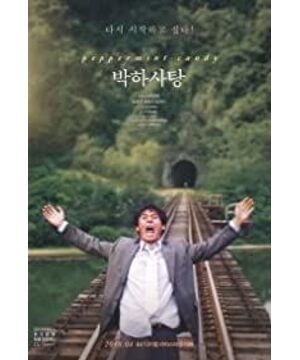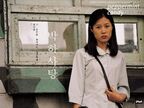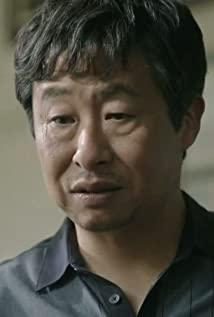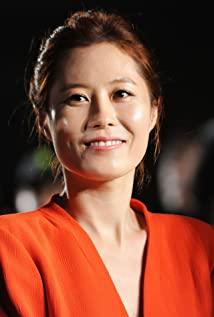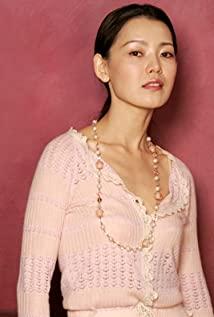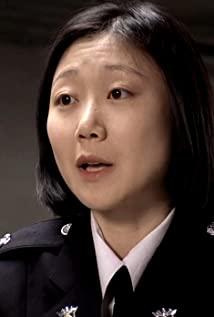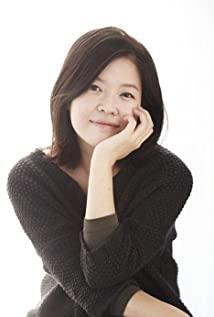The backward train divides the film, realizing Kim Yong-ho's return from the end to the original. Here I am trying to "pull the cinematic dimension" to (I don't know how to express it here, the texts of Deleuze's gang have made me have a lot of ideas about how to "speak" or, in Deleuze's own words, "create concepts" trouble)" the dimension we are in: when Li Cangdong is shooting the film, he must put the camera at the end of the train, and the train must be moving forward. I know whether it is appropriate to express this way)” that is, we get the image of “Jiehuo (huhu, here is a personal “creative concept”)”, and then, when Jin Yonghao, who was originally the subject, was replaced with us, who was the object, we got The inversion of this dimension of our audience. Of course this also applies to the film as a whole.
At first (corresponding to the end of the film) Kim Yong-ho was lying by the river, unknown wildflowers swaying beside him, not far behind was an idyllic scene (they were singing, they were playing in the water), and in front was an elevated railway line with trains The sound of the whistle came, and the train did not appear on the screen. Presumably Jin Yonghao did not see the train either, because the train was passing through the tunnel. He had an inexplicable smile on his face, and there were inexplicable tears in the corners of his eyes. What did he see at this moment? Is it his last rant (corresponding to the opening of the film)?
"I'm here for the first time, but I always feel like I've been here before." Kim Young-ho said. Life has begun, and the end has been written.
Jin Yonghao's nature is emotional, he likes little flowers whose names are unknown on the roadside, he wants to take pictures, he is so unusual in the life that should be extremely rational and extremely institutionalized in the military camp, he tries to get the girl to cross the railroad track back to the home on the other side , after he accidentally killed the girl, he hugged her still warm body and cried so heart-to-heart...
However, the more "growing" he became, the more "rational" he became, which is evident from the changes in his identity. From the students staring at the flowers by the river, to the crying soldier, to the factory worker (not shown in the film, the director just mentioned it by the way), to the budding policeman, to the ruthless and neat policeman, to the financial businessman, this is him The trajectory of a lifetime.
In fact, Jin Yonghao's life trajectory is not applicable to all living beings, and the trajectory is very similar to the image of the railway tracks in the film. The playback of images can be achieved, but the retrospect of the life trajectories of sentient beings is impossible, how cruel.
But that's how life is. Kim Yong-ho hates dogs, his wife asked why, and he replied that it was a dog. Then apply this logic to his own life, and ask, why do you hate life so much, it's just like this? Beautiful and ugly are just the figure of speech for the subject of "life". This reminds me of Yasujiro Ozu. In "Tokyo Story", Setsuko Hara's sentence "It's just like that" once made me relieved for a long time.
The film is titled "Mints", but the image of mints only appears four times in the film. The first time is when Kim Yong-ho went to visit his first love, and he told the dying woman that he kept the message she had sent with him. The second time was when a third party from the company stuffed Jin Yonghao into his mouth in his car, and he was extremely reluctant at that time; the third time was when he was preparing to perform military affairs, and the mint sent by his lover sprinkled a He was stomped on the ground by the soldiers behind him. At this time, the lies of Jin Yonghao before the film were already exposed; the last time was when Jin Yonghao and his first love met for the first time by the river when he was a student, and the girl handed him to him. A mint, no wonder Xiaosan was reluctant when he forced the candy into his mouth.
This faint image seems to be just a light footnote to Jin Yonghao's life in the film. Light people, light life, light flowers, light world.
How should people travel through the overflow of time and space when they stay in the residence of life? Is it to let the light of reason penetrate the shadow of irrationality, or does the shadow of irrationality confuse the light of reason? The answer given in this film is a compromise between the two. Following the backward train, I saw beautiful scenery on both sides of the track, green fields, green hills, people running and walking... However, when the train was moving forward, those beautiful The scenery is still blooming in front of you.
Is life beautiful?
View more about Peppermint Candy reviews


